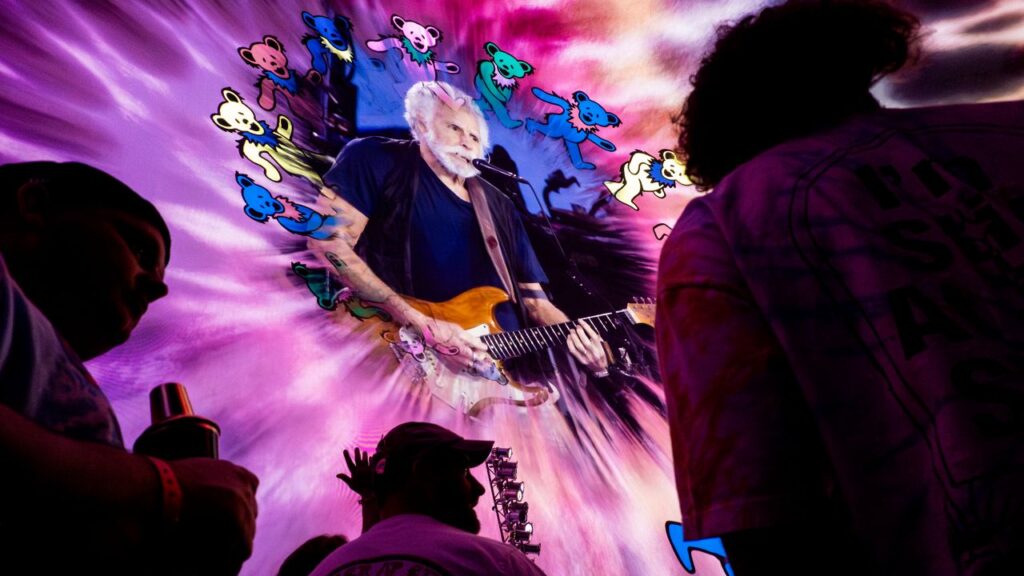California's Department of State Hospitals is billing vulnerable patients exorbitant sums for their involuntary care, saddling them with crippling debt. (CalMatters/Florence Middleton)

- Sultan Khan received a $769,490 bill from the state for his 3-year involuntary stay at a mental hospital.
- The state has required billing patients for their care since 1967, despite recent laws protecting other vulnerable groups.
- Public defenders argue the practice is unfair, as patients have little ability to pay and are committed involuntarily.
Share
|
Getting your Trinity Audio player ready...
|
The first bill arrived in Sultan Khan’s mailbox two years after his release from Napa State Hospital. Khan had received psychiatric treatment there for three years after pleading not guilty by reason of insanity to a criminal charge stemming from an assault.

Jocelyn Wiener
CalMatters
He stared in disbelief at the paper in front of him.
The Department of State Hospitals wanted him to pay back the cost of that stay: $769,490.
Wondering if he was being scammed, Khan phoned the department.
They suggested a payment plan.
The department’s practice of billing patients exorbitant sums after releasing them from its care has existed for decades, attorneys and advocates say. Such billing has been required under state law since 1967, and has been allowable since the 1930s. The practice has endured even though the state has passed laws in recent years preventing other government entities from charging big fees to vulnerable populations. One example: People leaving prisons and jails no longer have to pay for many of the costs of their incarceration.
“Here’s (the Department of State Hospitals) quietly collecting hundreds of thousands of dollars from our absolutely most, most vulnerable clients with the least ability to make any kind of payment,” said Rachel Draznin-Nagy, Khan’s public defender in Contra Costa county. “I’m so furious about it.”
California has five state mental health hospitals caring for more than 5,500 patients, the vast majority of them from the criminal justice system. Most have been charged with or convicted of offenses related to their serious mental illnesses; some, like Khan, are sick enough to be found not guilty by reason of insanity. Medi-Cal does not insure people who are in state hospitals.
After they are released months or years later, few of these patients have the financial resources to pay off massive bills, Draznin-Nagy and other public defenders said.
The Department of State Hospitals refused to make anyone available to speak with CalMatters about its fee collections program. But, in an unsigned email, representatives of the department said it “recognizes the stress and concern that individuals may experience when receiving financial notifications.”
They pointed to statutes “which require (the department) to collect upon the cost of care delivered in state hospitals.” In order to be reimbursed by Medicare, they said, state agencies must bill patients for the cost of care when such billing is required by state law.
This past May, thanks to recent changes in law, the department rolled out a new financial assistance program that allows it to forgive some or all of a patient’s debt. But public defenders say many of their clients do not have the wherewithal to complete the paperwork required to apply for the program in a timely manner.
The evening before publication, the department announced it had fully forgiven the debt of its first applicant.
Related Story: California Dad Who Drove Family Off Cliff Will Get Mental Health Treatment ...
Data from a report to the Legislature in 2022 showed that the department collected $418,861 from an unspecified number of former patients between January 2018 and September 2021. The report also noted that the department had filed six lawsuits seeking collections during that time. It had not written off, reduced or canceled any patient debt in that period. The department did not provide CalMatters with more recent data. Its current budget is $3.4 billion.
In its email, the department’s representatives said it has neither sent former patients to collections agencies nor garnished their wages. But if patients have not made an effort to pay their bills or been in contact about making payment arrangements, contesting their bill, or applying for the financial assistance program, the department can forward a request to the Franchise Tax Board to collect unclaimed property, funds or tax returns to offset the cost of care.
‘Shocking’ Hospital Bills
In recent years, advocates and attorneys have convinced the Legislature to overturn other policies that require billing vulnerable groups, often low-income people of color.
In 2018, California led the way nationally in abolishing fees for juvenile offenders.
In 2022, the state halted the collection of fees from people in jail and prison for costs associated with their incarceration.

Stephanie Campos-Bui, a Berkeley Law professor involved with those efforts, said the size of Department of State Hospitals bills, such as the one Khan received, is “shocking.” Part of what led to legislative changes banning collection of other types of fees is that the cost to the state often negates any revenue such fees might generate, she said.
“If we really think it’s in our interest as a society to be placing these people in state hospitals, that should be on the general fund, the taxpayers, to do that, not on people who are involuntarily being committed to these facilities,” she said.
Joseph Gocke, a public defender from Yolo County, said one of his clients received a bill in 2022 for $81,491 after spending months in a state hospital.
“We went to court. We contested it. We lost, unfortunately,” he said.
“To then turn around and give them a bill for something they’re not choosing seems fundamentally unfair.”
JOSEPH GOCKE, YOLO COUNTY PUBLIC DEFENDER
Some of the case law that allows the department to collect such fees dates back to the 1950s and early ’60s, he said, predating even the right to an attorney, which was established in 1963.
“It’s bizarre that this is still allowed because these are clients of ours that the law also mandates that they go to the state hospital for treatment,” he said. “And to then turn around and give them a bill for something they’re not choosing seems fundamentally unfair.”
Elizabeth Madsen, a Placer County public defender, requested an itemized bill for one client in 2020, after he was deemed incompetent to stand trial and sent to a state hospital. The Department of State Hospitals, the bill showed, charged $520 a day for his three-month stay. State officials sent multiple bills to his parents trying to collect a total of $51,945, which included the day rate as well as the cost of medications and vaccines.
Related Story: Two Fresnans Defrauded a Mentally Ill Man out of Millions. First Sentencing ...
Madsen said this was the only such bill she was aware of any of her clients receiving over the years, leading her and other public defenders to believe such billing is unevenly implemented. She said state hospital representatives told her they sent such bills all the time.
The email from the Department of State Hospitals earlier this month noted that, “upon any individual’s admission to the state hospital, the Hospital’s Trust Office informs the patient about their liability for the care, support, and maintenance in a state institution.”
‘I’m Basically Going to Be in Debt for the Rest of My Life’
Khan doesn’t remember anyone telling him he’d be on the hook for so much money. He was struggling with a new diagnosis of schizophrenia and his life being upended at the time: “I had other things on my mind,” he said.
If hospital officials had explained how much debt he’d be in, he said, he might have opted to just go to prison – even though he feels the treatment he received at the state hospital ultimately helped him enormously.
“I mean, $760,000, I’m basically going to be in debt for the rest of my life,” he said recently, sitting in a conference room in downtown Martinez with his public defender, Draznin-Nagy. “It’s not a good feeling, believe me.”

Khan had landed in the criminal justice system soon after he returned from a stint as a Pashto interpreter at Guantanamo Bay, the controversial detention camp in Cuba where the United States military housed detainees after 9/11. The violence he saw while working there traumatized him, he said. In addition to experiencing Post Traumatic Stress Disorder and depression, he was diagnosed with schizophrenia in jail. In the state hospital, his illness responded well to medication and treatment. He was discharged in 2018, and began the process of piecing his life back together. He moved in with his family. He started collecting disability payments. He got a part-time job at a local grocery store.
Related Story: Newsom’s Prop 1 Promises to Build & Fund Mental Health Beds. But it ...
He received the first bill two years later. The treatment team that worked with him in the county’s conditional release program sent the department proof of his inability to pay, he and Draznin-Nagy said.
A year went by before Khan received another letter from the department informing him that it was updating its policies and would not pursue collection until that process was completed.
Almost three years after that, Khan received a third letter this past May. If he did not contact the department’s Patient Cost Recovery Section to request financial help within 30 days, it said, the department would resume billing.
Even though he has reached out to the state through his attorney, Khan says anxiety about the bill keeps him awake at night. He thinks about it while he’s working and during walks through the local park that used to help him clear his head.
“It’s like a weight on my shoulders,” he said. “It lingers in my mind.”
About the Author
Jocelyn Wiener is a projects reporter with a focus on mental health and health care who explores the intersection between government policies and people’s lives. Her work has won numerous regional and national awards.
About CalMatters
CalMatters is a nonprofit, nonpartisan newsroom committed to explaining California policy and politics.



















